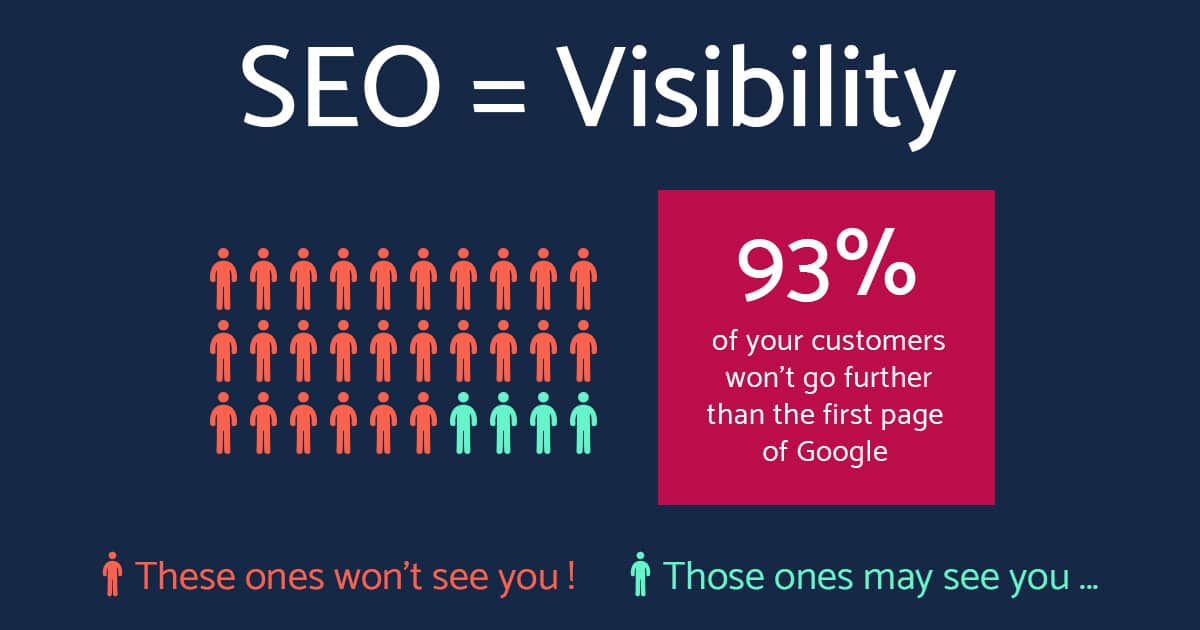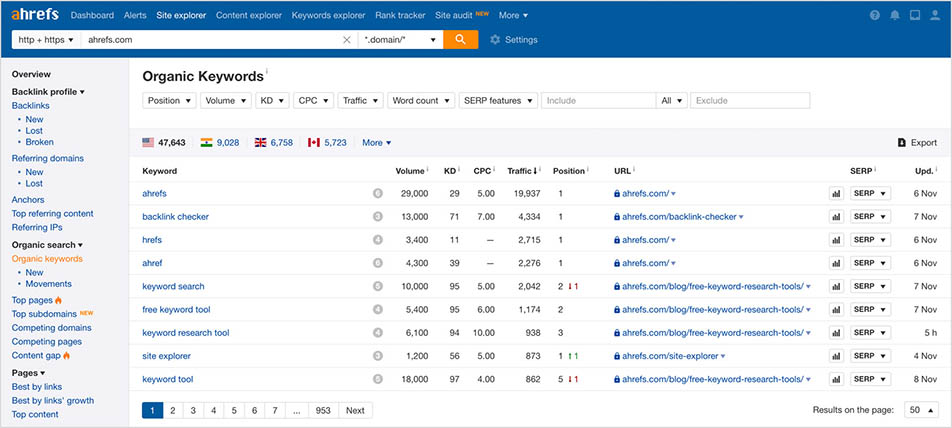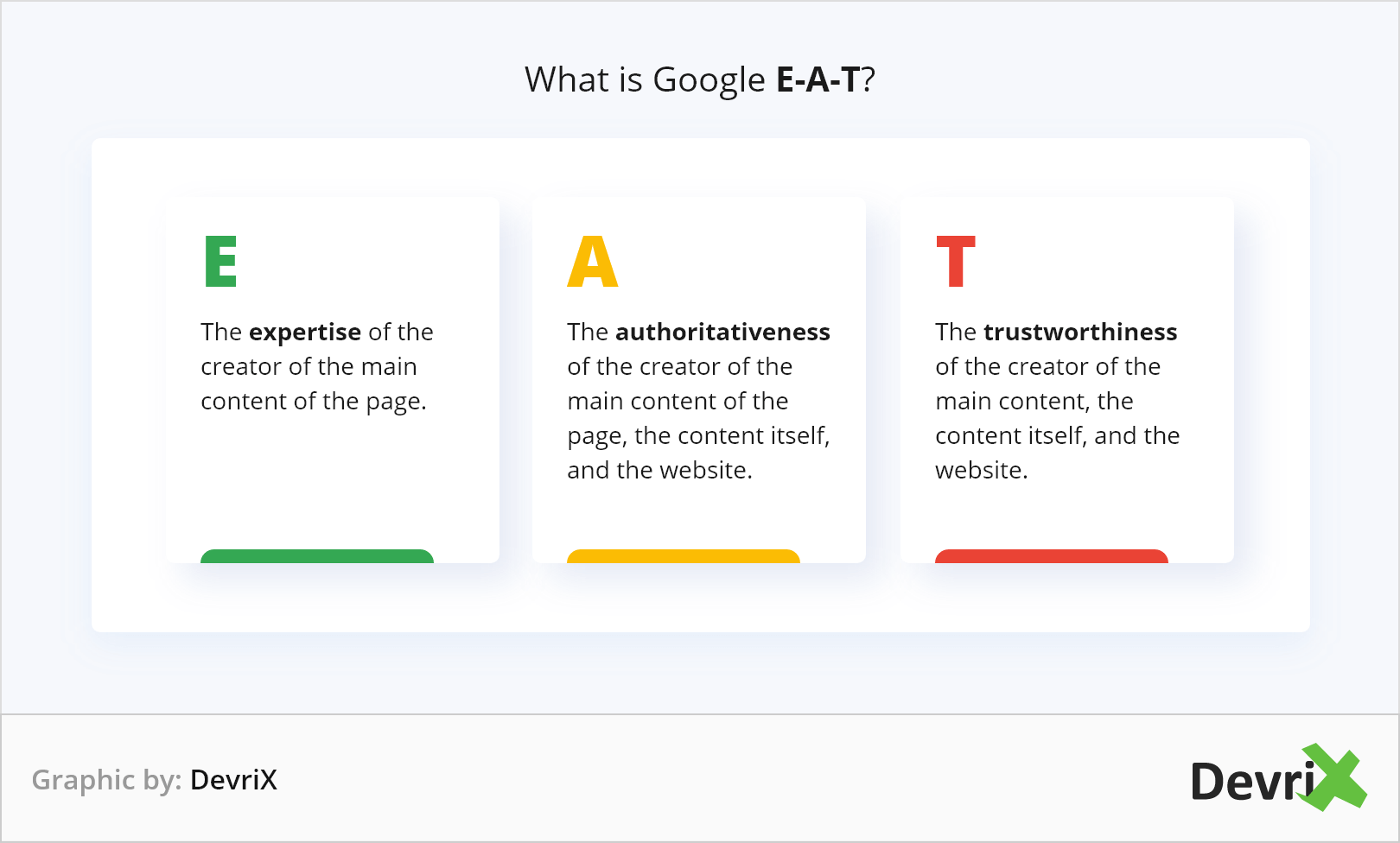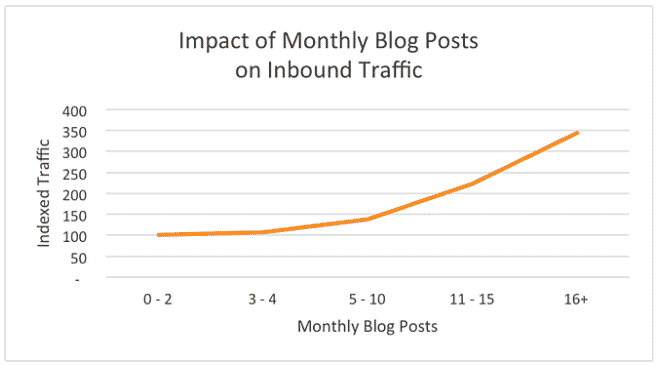
How To Get 3x Traffic and Google Rankings with Content Marketing
Content marketing is the best way to drive organic traffic to your website. In fact, companies that do content marketing best earn 3x the traffic than brands that don’t do content marketing. That’s a huge difference!
So if you’ve been reading our articles at all, you already know why content marketing is effective. The question isn’t really what drives traffic and leads to your website, it’s how do you beat out all of your competitors who are also using content marketing as part of their strategy?
To do it, you need four things:
- SEO mastery — you know the most important Google ranking factors, and align your content to them.
- Authenticity — you know your brand and reflect its voice and expertise in your content.
- Creativity — you provide high-value, original content and put new, exciting spins on topics that have already been covered.
- Consistency — you have a plan to publish content frequently across multiple channels.
You see, many brands are just going through the motions when it comes to their content marketing strategy. It’s why out of the 90% of brands publishing content, only 24% report that it’s showing strong ROI.
To truly boost organic traffic and earn search rankings with content marketing, you need to start going the extra mile. And in this article, we’ll show you how to do it. First, we’ll deep dive into each of the four approaches mentioned above, then we’ll cover practical steps you can take to implement them right away.
Quick Takeaways
- Search engines are the starting point of almost every online experience.
- Brands can earn better search rankings with content marketing by first improving keyword rankings that already exist, then building on their success.
- Google uses RankBrain and the EAT framework to determine content value and relevance.
- Practicing creativity with design thinking, varied content types, and current trends make content more engaging.
- Brands that publish blog posts 11-16x per month earn more traffic and higher rankings than those who publish less frequently.
- Many companies outsource content creation when they don’t have the internal bandwidth to execute a strong content plan themselves.
SEO Mastery
Search engines are the launching point for almost every online experience people have today. Think about it: when you need a quick answer to a question, you use search. When you’re researching brands? Search. Shopping for a product? Search. Looking for a video you want to watch? Search. And where do Siri, Alexa, and other smart assistants get their answers? You guessed it — search.
It’s no surprise then that search engine optimization (SEO) is the most critical component of your strategy for earning search rankings with content marketing. SEO, in short, is a set of tactics and approaches that position web pages and content to rank highly on search engine results pages (SERPs).
You can create the best content in the world, but it likely won’t get you anywhere unless it’s also ranking on Google. In fact, more than 90% of online users never click past the first page!

Keyword research
Every good SEO marketing strategy begins with keyword research. Fortunately, there are some great tools you can use to perform your keyword research quickly and thoroughly.
First, you want to find out which keywords you’re already ranking for. You can do it using the keyword Position Tracking Tool from SEMRush or the Keyword Rank Checker tool by Ahrefs.

It’s a good idea to start your SEO efforts by focusing on these keywords. Since you’re already finding success with them, you can earn some quick wins and build on your success.
For example, if there are a few keywords you’re already ranking on page one for, aim to get them up to the top three search results on that page. It’s a lot easier to go from #10 on a SERP to #3 than to go from no ranking at all to page one. Focus first on maximizing your current success to build momentum for your strategy going forward.
Next, you want to know which keywords people are searching for related to topics, products, services, and other information related to your industry and brand. Ahrefs and SEMRush both also offer keyword research tools to help you do it.
Now you can make your plan for creating content around these new keywords you’ve uncovered as relevant to your brand and important to your target audience. Quick tip: start with the keywords that are most closely related to the keywords you’re already ranking for. Because Google already sees you as having brand authority on these topics, you’ll have a head start on earning rankings for new keywords under the same topic umbrella.
Other important SEO tactics
Keywords may be the largest contributor to your SEO strategy, but it’s not the only Google ranking factor that matters. Your strategy needs to be comprehensive to succeed, and it should incorporate these other critical SEO contributors:
- Backlinks – Links from other quality websites back to your own site. Google uses backlinks to establish brand authority.
- Site structure and UX – Your website should be structured intentionally to make it easy and intuitive for both human users and search engine crawlers to navigate.
- Mobile optimization – Google now uses mobile-first indexing, meaning that in most cases the mobile version of your site is more important than the desktop version.
- Value and relevance – Google and other search engines are smarter than ever. They use AI algorithms to look for content that is truly valuable and relevant for its target audience, not just stuffed with keywords to grab attention.
Those last factors — value and relevance — that will be threaded most heavily throughout the rest of this guide. If there’s one thing Google has made clear as it’s gotten smarter and more sophisticated, it’s that it expects brands to write for humans first, not algorithms. You do that by being authentic, creative, and consistent to deliver high-value content to your audience.
Authenticity
When we say authenticity, we mean that your content stays true to two things. First, it covers the topics and subject areas where your brand has the knowledge and expertise to add value. Second, it accurately reflects your brand offerings, voice, and personality.
In simpler terms: you’re being yourself! You’re not using content to try and be something you’re not, or sneak around the Google algorithm to gain more visibility where it makes less sense to have it.
Still skeptical about how this is relevant to earning search rankings with content marketing? Let me introduce you to RankBrain.
RankBrain is an AI algorithm that Google has recently confirmed to be its third-most important ranking factor. It specifically determines how valuable and relevant users are finding your content by looking at metrics like the length of time users spend on your page. This means even if you’re crafting your content to include the right keywords, if users click out of it right away, you’re going to lose credibility with Google.
Here’s an overview from Moz on how to optimize for RankBrain:
Another authenticity-related concept that’s important to know is Google’s EAT framework. EAT stands for expertise, authoritativeness, and trustworthiness.

Google uses this framework to evaluate the credentials of the content creator to determine if they are qualified to provide the content they’re publishing. It’s most relevant in industries where information shared through content can have a direct impact on someone’s well being or livelihood — like medical or financial topics, for instance — but it’s an important consideration for every brand to keep in mind.
The takeaway: Google is smarter than any brand’s attempt to stuff keywords in articles to beat an algorithm. If you want to start earning organic search rankings with content marketing, you need to know your brand, know what’s relevant to your audience, and publish content that’s truly valuable to people who read it.
Creativity
People don’t want to read boring content. This sounds obvious, but the truth is when you Google most topics, the first few articles say almost the exact same thing. Company blog articles are often seriously lacking in the excitement department, instead sticking to a formal, even mechanical tone.
There’s definitely a time and place for that type of straightforward approach. But in general, people want content that feels engaging and real. That means you should have a little fun with your content, and you can do that by putting your creativity hat on.
We’ve got good news for you: everyone can be creative. Marketers by nature usually consider themselves pretty creative, but even if you don’t, you can learn.
One of the best ways to get you and your team thinking creatively about content ideas is with a design thinking approach. Design thinking aims to come up with ideas that solve real problems for a particular group of people (in this case, your customers). We don’t have time to fully dive into it here, but this video gives you a good overview:
Here are some other simple ways you can take a more creative approach to your content marketing strategy:
- Use different content types – Are there already dozens of articles written about the topic you’re covering? Think about making a video or infographic instead! Visual content is actually more shareable and engaging, so it’s a win to vary it up.
- Try the skyscraper technique – The skyscraper technique looks at the highest-ranking content for a particular topic and capitalizes on its gaps and weaknesses to make a better version. The perfect time to think about how to put a new, creative spin on something already covered.
- Cover news and trends – Current events are an awesome way to make your content topics relatable and more exciting to your audience. Pay attention to what’s happening in your industry, and don’t be afraid to provide your own unique commentary about what’s going on.
Consistency
Earning search rankings with content marketing takes time and consistency. Research has overwhelmingly shown that brands that publish frequently over a long period of time earn more traffic and higher rankings as a result.
HubSpot found that brands that publish 11-16 times per month earn double or even triple the amount of inbound traffic than brands that publish less often.

Image Source: HubSpot
The best way to stay consistent is by using a content calendar to help you stay on track. There are tons of awesome content calendar templates you can download and customize to your needs.
Even with a great plan in place, however, you might be thinking 11-16 blog posts per month sounds way beyond your team’s bandwidth. If that’s the case, you’re not alone. About 70% of companies outsource their content creation, often for this very reason.
Content marketing agencies have the resources, experience, and expertise to execute your content strategy at scale. Partnering with an agency is much smarter than having an overworked, frustrated team.
Jumpstart your search rankings with content that delivers
Marketing Insider Group’s Content Marketing Strategy and SEO Blog Writing Service will help you develop an effective strategy, implement it to hit your goals, and track important KPIs.
We can create quality, optimized content for you to publish on your website every single week. We’ll also promote your content for higher visibility and track your ROI so you know exactly how it’s performing.
Ready to get started? Schedule your quick consultation today.






